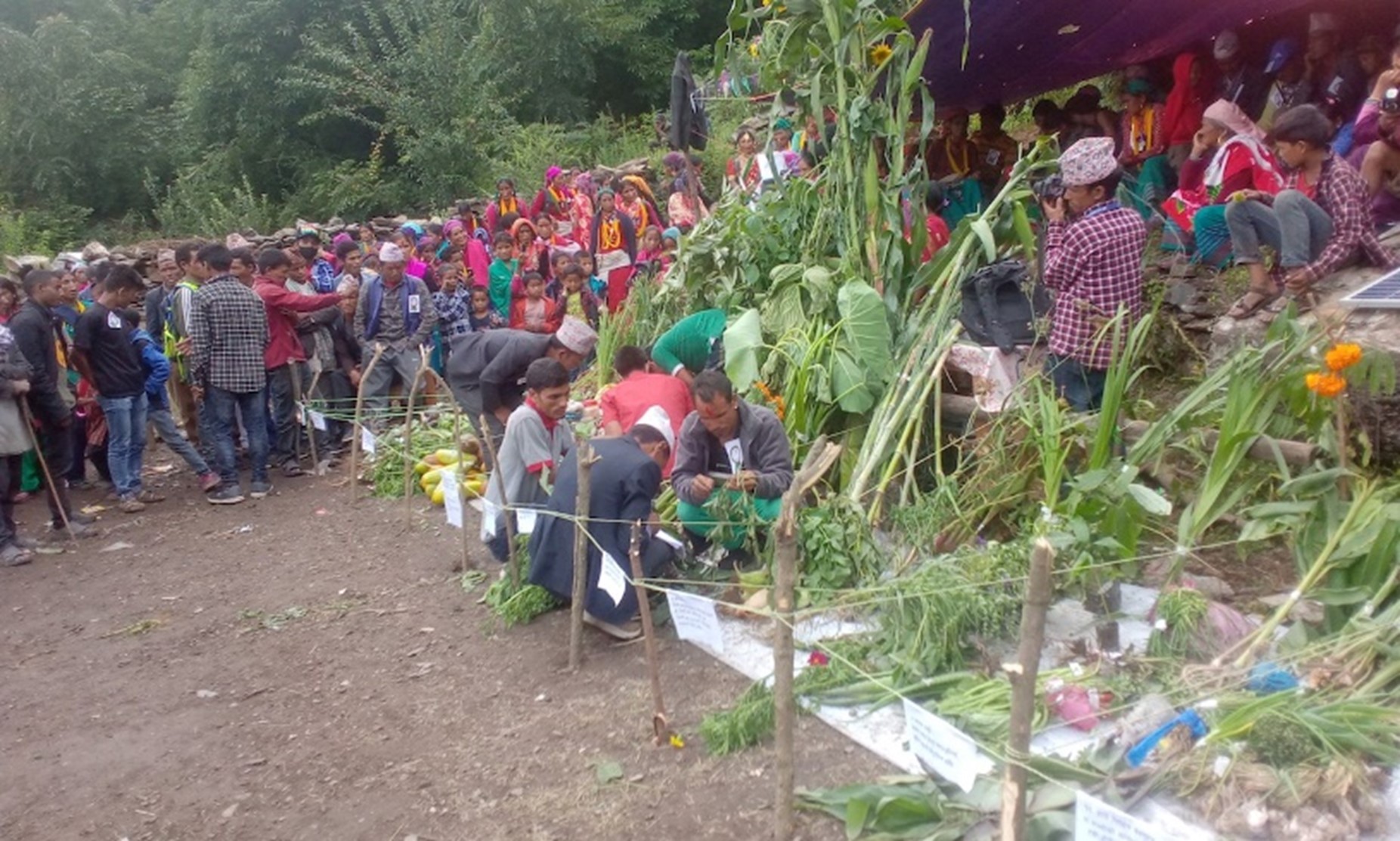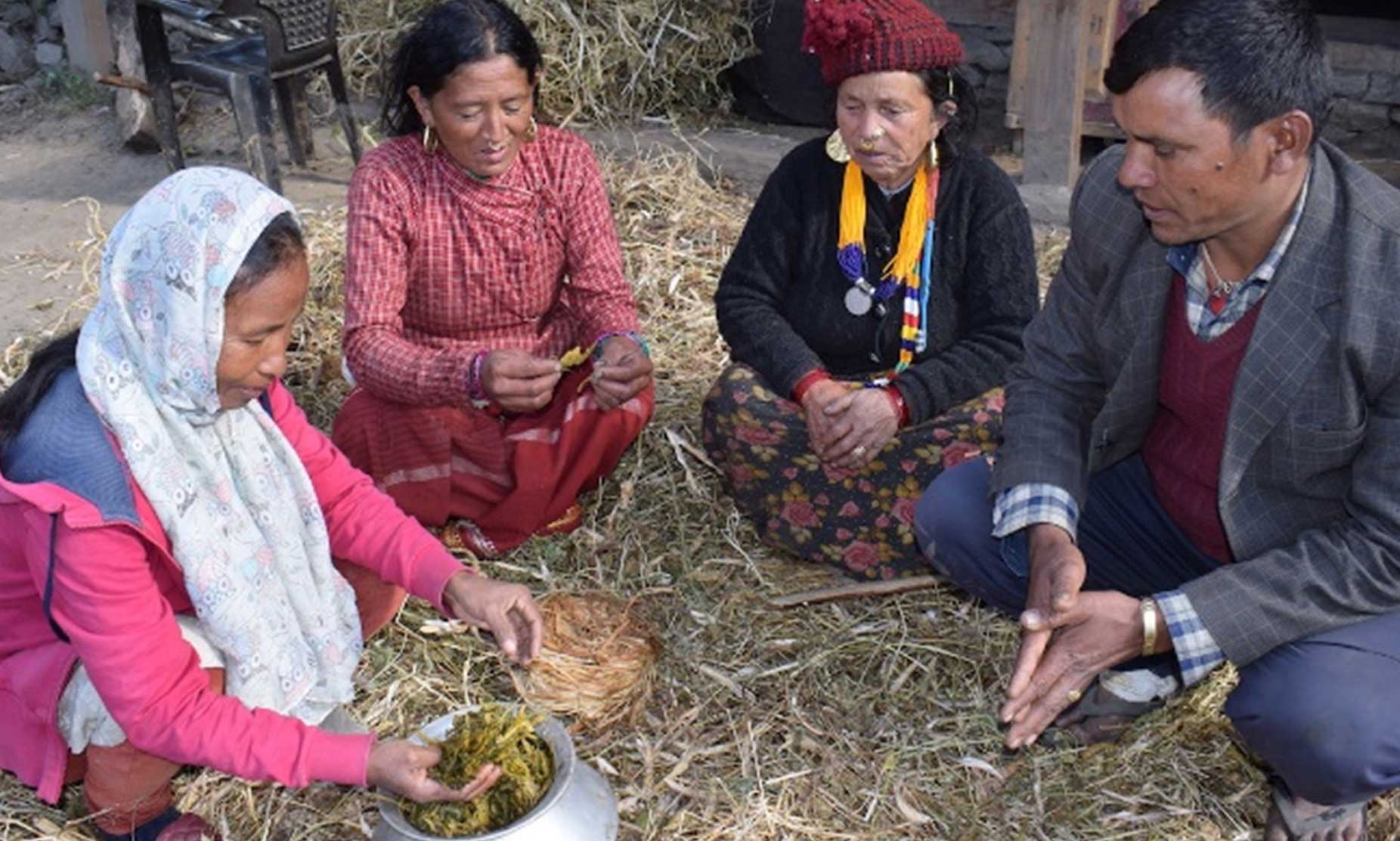Resilience-Building Through Agroecology
Nepal
This project led by the Himalayan Permaculture Center is implemented in the Karnali Province, where the NGO has been working since 2011. In this Province, which has the lowest population density and is home to the poorest and marginalized population in Nepal, the project works to collaboratively design and create resilient, abundant communities having ecological, social and economic sustainability through agroecology.
Lead Organization
Himalayan Permaculture Centre (HPC): is a grass-roots NGO focusing on remote/poor/resource depleted farming communities in Surkhet & Humla districts of Western Nepal, and especially marginalised populations, using low-tech appropriate technologies to increase domestic farm productivity through reducing costs of labour, money and other external resources while increasing farm diversity, resilience, health, education and livelihoods.
Partner organizations: Local government and national NGOs such as Social Work Institute and Almost Heaven Farms. Additional partners are being sought.
Country
Nepal, Karnali province, ten districts.
Timeline
June 2023 – May 2028.
- Between March 2012-2023 (10-year project) = 4 phases including project design approach, trainings, capacity building, building up resources, outreach to villages and working on various agroecology and permaculture practices. They worked in 2 districts, 31 villages, and with 800 households and 5000 villagers.
- Between May 2023 – until May 2028 = Phase 5 = scale up. Building resilience through agroecology in Karnali (10 districts). Focus on Food security and Health and in particular preventive health.
Funding
Investment from local government have already been received. HPC is currently looking for additional funds
Mission
To collaboratively design and create resilient, abundant communities having ecological, social and economic sustainability through agroecology.
Through dynamic and innovative programming, communities will be able to provide for their own water, food, health and energy needs, becoming not only sustainable but truly regenerative, joining the global effort to create ecological, social and economic abundance.
Context
Socio-economic context: The Karnali Province comprises 10 districts, 79 municipalities and 718 wards (a political area usually containing 1 village). Its area is 27,984 square km and its population is 1,694,889 (2021 census) in approximately 300,000 households. The Karnali Province has the lowest population density at 61 people per square km (next lowest is Gandaki Province at 120pp/km2) and has a literacy rate of 58.5%. It has the lowest economic growth rate in the country with an annual economic growth rate of 5.7% and it contributes the least to the GDP (4.1%). The Province is among the poorest in Nepal with an estimated 28.9% of people living under absolute poverty (second highest in the country) and 51.7% of the people are multi-dimensionally poor (highest in the country). Finally, local population belong to lower castes.
Environmental context: The Karnali Province is composed of remote areas with steppes, rain, and snowmelt. Farmers are quite food insecure. The Province faced several decades of gradual erosion (forests were cut, land was cleared and lost its fertility) resulting in a lower productivity.
Main beneficiaries
Marginalized population from lower castes, mainly women.
Strategy
After 30 years of applied integrated rural development, HPC members have identified these following objectives and activities to be most effective in achieving the goal of resilient and abundant communities.
Objectives
Objective 1: Scale-up and Spread of best-practice methods and approaches of integrated, agro-ecological farming
Provide demonstration of and training in a range of technologies and approaches that increase domestic farm and household productivity
Objective 2: Creation of Regenerative Livelihoods
Facilitate establishment and operation of social enterprises and ethical business models based on agroecological abundance, that develop rural enterprises and income generating activities to improve local household and community economies
Planned activities (2023-2028)
Planned activities for Objective 1:
- Establishment and operation of 20 new demonstration and training farms in Karnali Province (5 in year 1; 10 in year 2; 5 in year 3)
- Associated farmers’ training programs in Agroecology, women’s health and practical schools’ classes (including design of school land)
- Develop farmers’ Agroecology Academy to train 75 “barefoot consultants” (farmer-trainers/designers)
Planned activities for objective 2:
- Develop cottage industries based on agroecologically-produced foods and edible oils, medicinal herbs, soaps, textiles, and biofertilizers
- Support cooperatives to attain Organic certification
- Provide business literacy training to facilitate market access
These activities need to be supported by effective governance and social and economic policies that ensure achieving a widespread application.
Effect and Impacts
Even though it is too early to assess impact on this specific project, similar projects in other areas in Nepal showed that the techniques learned by farmers are timesaving, productivity-increasing and cost-decreasing. It’s difficult to measure a complex system such as agroecology so monitoring and evaluation will be a priority to develop within our partnerships.
Relevant links
Farmers’ handbook: learning resource which will be used in Karnali project and has previously been used in other HPC’s projects: https://www.permaculturenews.org/2020/08/24/farmers-handbook/ It was first written in Nepalese and then translated into English.
Video presentation of the HPC (by Lush prize) https://springprize.org/the-prizes/established-projects/?fbclid=IwAR05wp01ocSofOIP43gQ_w02VsPO9M2Lazvd6dVwiQ_MJNabuUwx4saz71k
Contact
Chris Evans, Himalayan Permaculture Center, cevans@gn.apc.org




